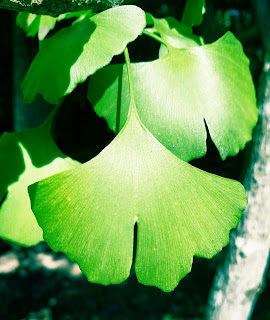A little less self, a little more selfless, a little more self to give.
The selfie obsession reached a new low this week when a family placed their child in an 800-year-old coffin at a museum in Britain for a photo op, damaged the artifact, and then left without a word. Of course, closed-circuit television cameras caught them in the act. Somehow, this story seems to encapsulate so much of this era in a nutshell. A little less self, a little more selfless, perhaps?
So much of public discourse of late seems to revolve around the self -- what I deserve, what I have lost or sacrificed, what I know to be true, what I was told, how I perceive the world, how I defend what I said or did, who I see as lesser than myself or greater than myself. So much is said and done and believed to be true without thoughtful reflection of or engagement in the perspective and experience of others. Somehow the foundation of working for the common good has been badly shaken, and we continue to dig in our heels. Maybe, a little less self, a little more selfless?
Our public discourse might be far more civil, if we first thought of how every word and deed might effect the other before we spoke and acted. Isn't this what we have been trying to teach our children all along? I have told my girls dozens of times over the years:
"You are no more or less worthy than anyone else. You don't have to like everybody, but you must treat everybody with basic respect. Period. And, remember that each individual has a personal story that makes them who he or she is. Try to understand and it will be far easier to be gracious."*The message remains true for me as much as them. A little less self, a little more selfless.
For me, the bottom line is that the health of our society depends on sacrifice of self for the common good. The needs of many are great in communities no matter where you live and nothing is more common among all of us than the desire to have the essential needs met of those we love most. Anything less must certainly be a moral failing in light of our nation's economic and political standing in the world. A little less self, a little more selfless.
So, I am turning this mantra over in my head, a meditation of sorts. I might even call it a personal mission statement. Of course, I mix up my wants and needs on a regular basis. I rant. I rave. I know, if you know what I mean. I dig in my heels, too. I am working on it though, step by step. A little less self, a little more selfless, a lot more self to give.
Want
Carrie
Fountain
The
wasps outside
the kitchen window
are making that
thick, unraveling sound
again, floating in
and out of the bald head
of their nest,
seeming not to move
while moving,
and it has just occurred
to me, standing,
washing the coffeepot,
watching them hang
loosely in the air-thin
wings; thick, elongated
abdomens; sad, down-
pointing antennae-
that this
is the heart’s constant
project: this simple
learning; learning
how to hold
hopelessness
and hope together;
to see on the unharmed
surface of one
the great scar
of the other; to recognize
both and to make
something of both;
to desire everything
and nothing
at once and to desire it
all the time;
and to contain that desire
fleshly, in a body;
to wash it and rest it
and feed it; to learn
its name and from whence
it came; and to speak
to it-oh, most of all
to speak to it-
every day, every day,
saying to one part,
“Well, maybe this is all
you get,” while saying
to the other, “Go on,
break it open, let it go.”
the kitchen window
are making that
thick, unraveling sound
again, floating in
and out of the bald head
of their nest,
seeming not to move
while moving,
and it has just occurred
to me, standing,
washing the coffeepot,
watching them hang
loosely in the air-thin
wings; thick, elongated
abdomens; sad, down-
pointing antennae-
that this
is the heart’s constant
project: this simple
learning; learning
how to hold
hopelessness
and hope together;
to see on the unharmed
surface of one
the great scar
of the other; to recognize
both and to make
something of both;
to desire everything
and nothing
at once and to desire it
all the time;
and to contain that desire
fleshly, in a body;
to wash it and rest it
and feed it; to learn
its name and from whence
it came; and to speak
to it-oh, most of all
to speak to it-
every day, every day,
saying to one part,
“Well, maybe this is all
you get,” while saying
to the other, “Go on,
break it open, let it go.”
*Don't get me wrong as I also clearly communicated that abusive and bullying behavior is never to be tolerated!


